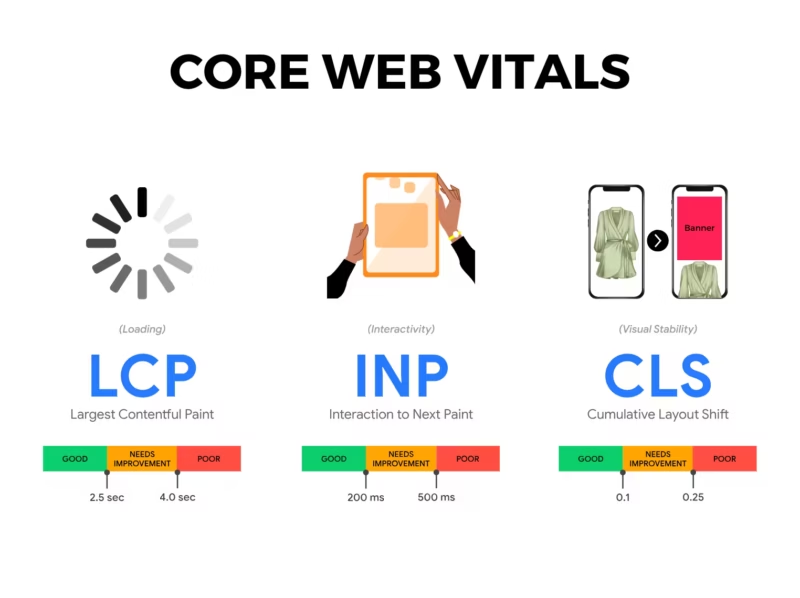The Traxxas TRX-4M took the RC crawling world by storm as a 1/18-scale trail truck that punches well above its weight class. Its compact size, portal axles, and surprisingly capable suspension made it an instant hit — and it didn’t take long for the aftermarket to respond. Whether you’re chasing better trail performance, durability, or just want your mini crawler to stand out, there’s no shortage of upgrades available. Here’s a breakdown of where to find them and which brands are leading the way.
Electronics & Power
Furitek
Furitek has become practically synonymous with mini crawler electronics. Their Lizard Pro and Lizard V2 brushless ESCs are purpose-built for 1/18 and 1/24-scale crawlers, offering drag brake tuning, proportional throttle control, and smooth low-speed crawling that the stock Traxxas ESC simply can’t match. Pair one with a Furitek Micro Komodo or Stinger brushless motor and the TRX-4M transforms into a completely different machine. They also sell combo kits that include the ESC, motor, and wiring harness pre-configured for the TRX-4M, taking the guesswork out of the swap.
Emax
For those looking at servo upgrades, Emax offers micro servos like the ES08A II that fit the TRX-4M’s tight chassis dimensions and deliver noticeably faster, stronger steering response than the stock unit.
Aluminum & CNC-Machined Upgrades
Treal Hobby
Treal has arguably the widest catalog of CNC aluminum and brass parts specifically designed for the TRX-4M. Their offerings include aluminum portal housings, steering links, shock towers, chassis rails, and transmission cases — all precision-machined and available in multiple anodized colors (black, red, blue, titanium, and more). Their brass portal covers and knuckles are especially popular because they add weight exactly where crawlers need it most: down low and at the axles. Treal sells direct through their website and Amazon, and pricing sits in a competitive middle ground between budget and premium.
Hot Racing
Hot Racing is a veteran name in RC upgrades and their TRX-4M line doesn’t disappoint. They produce aluminum shock bodies, sway bar kits, steering links, and drive shafts. Their parts tend to be slightly more premium in finish and fitment. The aluminum front and rear bumper/skid plate combos are particularly well-regarded for both looks and protection. Available through most major hobby retailers including AMain Hobbies and Amazon.
Meus Racing
Meus Racing has been steadily building a following in the mini crawler community with a broad and affordable parts catalog for the TRX-4M. They cover a lot of ground — aluminum suspension links, shock towers, skid plates, portal housings, steering components, and chassis braces — all CNC-machined and offered in multiple anodized color options. Where Meus Racing particularly stands out is in their scale and functional accessories: detailed roof racks, side step bars, bumpers with shackle mounts, and even full chassis rail conversion kits. Their brass upgrade parts (diff covers, portal knuckle weights, and axle-mounted counterweights) compete directly with Treal and Injora on both quality and price. They also offer complete upgrade bundles that package multiple parts together at a discount, which is appealing if you’re doing a full build rather than upgrading one piece at a time. Most of their catalog is available through Amazon and their own storefront. Meus Racing occupies a sweet spot — more variety than GPM with quality that competes with Treal, all at accessible pricing.
GPM Racing
GPM offers a massive selection of aluminum replacement parts at aggressive price points. Nearly every stock plastic component on the TRX-4M has a GPM aluminum equivalent — knuckles, C-hubs, shock mounts, body posts, even the differential cover. Quality can vary piece to piece, but for the price they represent solid value, especially if you’re upgrading the entire truck at once. Widely available on Amazon and eBay.
Brass & Weight Additions
Injora
Injora has built a strong reputation in the mini crawler community for affordable brass and aluminum upgrades. Their brass portal covers, counterweights, and wheel weights are among the most popular TRX-4M parts sold online. They also offer complete brass axle housing sets, skid plates, and steering components. Beyond metal parts, Injora carries a full range of wheels, tires, body shells, and scale accessories specifically sized for the TRX-4M. Their direct website often has bundle deals, and their Amazon storefront makes ordering easy.
Yeah Racing
Yeah Racing produces brass diff covers, portal housings, and link sets for the TRX-4M. Their parts are well-machined and competitively priced. They’re a solid middle-of-the-road option if you want quality brass without paying top dollar.
Bodies & Shells
Bitty Design
Bitty Design is an Italian company known for high-quality polycarbonate body shells across multiple RC scales, and they’ve brought that expertise to the TRX-4M. Their Rock Lizard 1/18 crawler body is a standout — a purpose-designed crawling shell with aggressive lines, proper wheel clearance, and scale detailing that looks fantastic on the TRX-4M chassis. Unlike generic hard bodies, Bitty Design shells are lightweight polycarbonate, which gives you more freedom to add brass weight down low where it matters without making the truck top-heavy. They come clear for custom painting, and the fit and trimlines are precise. Available through most major hobby retailers and their direct website, they’re a premium option for anyone who wants their TRX-4M to look as unique as it performs.
Hobby Details
Hobby Details carries a growing selection of TRX-4M body shells (Bronco, Land Cruiser, Defender styles), LED light kits, and interior components. They’re a good one-stop shop for making your TRX-4M look as good as it crawls, with hard body options that bring serious scale realism to the 1/18 platform.
Tires & Wheels
Injora
In addition to their metal parts, Injora dominates the TRX-4M tire and wheel market. They offer dozens of wheel designs in aluminum and plastic (beadlock and non-beadlock), plus soft-compound tire options in various tread patterns. Their 1.0″ beadlock wheels paired with super-soft sticky tires are one of the most common upgrades and make an immediate difference on rocks and technical terrain.
Powerhobby
Powerhobby produces 1.0″ tires specifically for the TRX-4M class, including the Raptor and Armor patterns that offer excellent grip on multiple surfaces. They also sell wheel and tire combos pre-mounted and ready to bolt on.
RC4WD
RC4WD offers scale-realistic 1.0″ tire and wheel options for those building a more true-to-life rig. Their Mud Plugger and Interco licensed tires bring full-size tire aesthetics down to 1/18 scale, and their stamped steel-style beadlock wheels are hard to beat for realism.
Specialty & Scale Parts
Mofo RC
Mofo RC has carved out a niche with creative, well-designed TRX-4M-specific parts. They’re known for functional accessories like high-clearance skid plates, chassis-mounted servo setups, bumpers, and rock sliders. Many of their parts are designed to solve specific performance problems rather than just look good, which makes them a favorite among serious trail runners. Available through their own website.
Knight Customs (3D Printed)
For scale body accessories — roof racks, light bars, snorkels, fender flares, and interior details — Knight Customs offers an extensive line of 3D-printed parts sized for TRX-4M bodies. They sell through their own storefront, and the level of detail is impressive for the price.
Drivetrain & Hardware
MIP
MIP (Moore’s Ideal Products) makes precision spline drive shafts and CVDs for a range of RC vehicles. Their steel and aluminum drive shafts for the TRX-4M are a worthwhile upgrade if you’re running more powerful brushless setups that put extra stress on the drivetrain.
1UP Racing
For those who obsess over the details, 1UP Racing offers precision bearing kits and premium hardware (titanium screws, anti-wear lubricants) that fit the TRX-4M. A full bearing kit swap reduces friction throughout the drivetrain and is one of the best bang-for-buck upgrades you can make on any RC vehicle.
Where to Buy
- Amazon — The largest selection from nearly every brand mentioned. Convenient but watch for counterfeit or mislabeled parts from unknown sellers.
- AMain Hobbies — One of the biggest dedicated RC hobby retailers. Carries Hot Racing, Yeah Racing, MIP, and more with reliable shipping.
- Jenny’s RC — Well-stocked hobby shop that carries Treal, Furitek, Injora, and many niche brands. Often has parts in stock that bigger retailers don’t.
- Horizon Hobby — Carries select aftermarket brands alongside Traxxas stock parts.
- Brand Direct Websites — Treal, Furitek, Injora, Meus Racing, Bitty Design, and Mofo RC all sell directly through their own websites, often with bundle pricing or early access to new releases.
- eBay — Good for GPM Racing parts and deals on used or overstock items.
Final Thoughts
The TRX-4M aftermarket is remarkably mature for a truck in this size class. Whether you’re spending $10 on a set of brass portal covers or $100+ on a full brushless electronics swap, the upgrade path is deep and well-supported. Start with tires and brass weight — those two changes alone will dramatically improve capability on the trail. From there, electronics and aluminum chassis components let you build a mini crawler that genuinely rivals full-size rigs in technical ability.
The best part? At 1/18 scale, even the premium upgrades are a fraction of what you’d spend on a full-size truck. That makes the TRX-4M one of the most rewarding platforms to build and modify in the hobby today.

 Is your WordPress site failing Core Web Vitals? You’re not alone. Google’s performance metrics have become increasingly important for both SEO and user experience, and many WordPress sites struggle to meet these standards.
Is your WordPress site failing Core Web Vitals? You’re not alone. Google’s performance metrics have become increasingly important for both SEO and user experience, and many WordPress sites struggle to meet these standards.
 As someone who’s been actively involved in the crypto space for over a decade, I’ve seen countless trends come and go. But one thing that’s become increasingly clear is that Bitcoin is here to stay. For those of us in Europe looking for a more traditional, regulated, and perhaps less nerve-wracking way to gain exposure to Bitcoin, exchange-traded funds (ETFs) offer a compelling option. In this article, I’ll walk you through why ETFs might make sense, how Bitcoin ETFs specifically work, and which ones I believe are the best choices for European investors right now.
As someone who’s been actively involved in the crypto space for over a decade, I’ve seen countless trends come and go. But one thing that’s become increasingly clear is that Bitcoin is here to stay. For those of us in Europe looking for a more traditional, regulated, and perhaps less nerve-wracking way to gain exposure to Bitcoin, exchange-traded funds (ETFs) offer a compelling option. In this article, I’ll walk you through why ETFs might make sense, how Bitcoin ETFs specifically work, and which ones I believe are the best choices for European investors right now. If you’ve spent any time exploring Barcelona’s coffee scene, you’ve probably noticed that the city has quietly become one of Europe’s most exciting destinations for specialty coffee. Gone are the days when a café con leche from a corner bar was your only option. Today, Barcelona is home to a thriving community of coffee roasters who are sourcing exceptional beans from around the world and roasting them right here in the city.
If you’ve spent any time exploring Barcelona’s coffee scene, you’ve probably noticed that the city has quietly become one of Europe’s most exciting destinations for specialty coffee. Gone are the days when a café con leche from a corner bar was your only option. Today, Barcelona is home to a thriving community of coffee roasters who are sourcing exceptional beans from around the world and roasting them right here in the city.